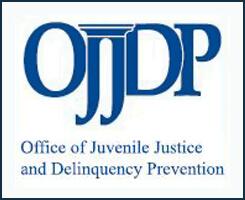Over the past 20 years, experts in the youth justice field have generally agreed on the importance of youth and family engagement in the development and implementation of programs designed to prevent delinquency, intervene with system-involved youth, and prevent recidivism. However, there is less agreement about what represents meaningful and effective engagement with youth and families. Rarer still is discussion about actual strategies and practices that support this engagement. When asked, staff at many agencies and programs believe they are engaging with families simply because they have families involved in their programs as recipients of services or in other roles, such as advisors. OJJDP believes that true engagement goes beyond involvement to achieve sustainable and effective partnerships at all levels: direct service, policy, practice, and system improvement.
Hart’s Ladder of Participation is often used as a starting point for understanding the complex and multilayered path for youth participation and engagement in social and civic life (see figure 1). Young people who are involved in the youth justice system and their families may experience a similar path. They live with the realities, impacts, and consequences of their experiences with the justice system and can provide the most relevant and nuanced guidance related to defining and practicing engagement and partnership.
In developing this best practices guide, we reviewed the most current literature about youth and family engagement and conducted indepth interviews with dozens of systeminvolved young adults and their families. Their expertise and input are reflected in this guide. We are deeply grateful for their wisdom, dedication, advocacy, and articulate framing of the issues addressed.
This best practices guide uses a simplified continuum denoting three levels of youth and family engagement, readiness, and implementation:
- Interaction: Primarily transactional (and often one-way) connections between youth/ families and program leadership and staff.
- Engagement: Relational, two-way connections between youth/families and program leadership and staff.
- Engagement: Relational, two-way connections between youth/families and program leadership and staff.

